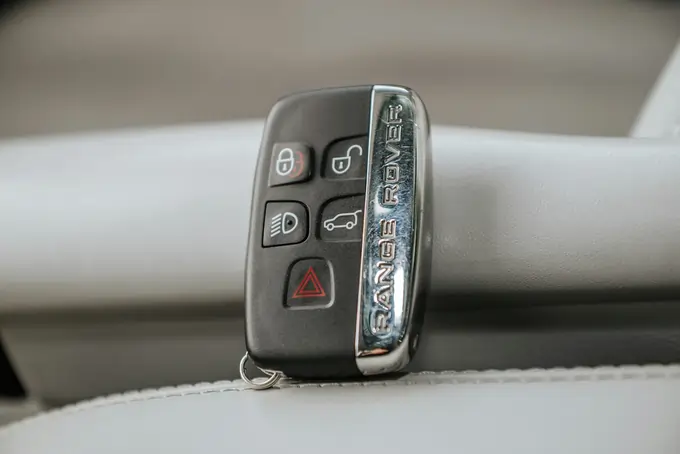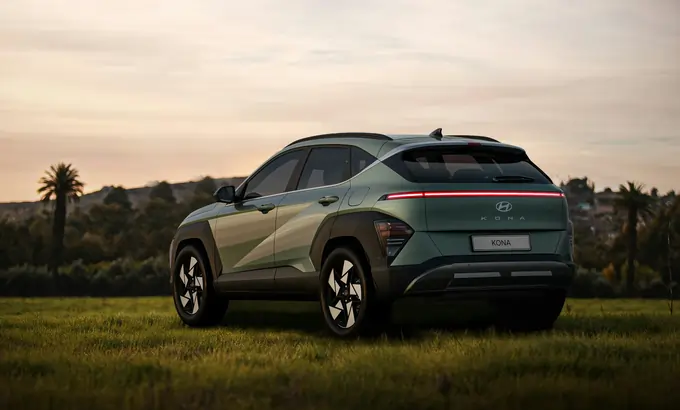
Car Leasing Advantages: Pros and Cons of Leasing Explained
Ever wanted a ride that feels both fresh and friendly to your wallet? Well, diving into the world of Car Leasing Advantages might just be your golden ticket.
Exploring the Benefits of Leasing a Car
If you’re thinking of leasing a car or going the traditional route with financing through a car loan, it pays to understand the pros and cons of each option. Leasing a car might seem appealing because it often means a lower loan payment than when you’re buying a vehicle. You’re not covering the entire value of the car, just its depreciation during your lease term. This can mean getting into a less expensive new car than you might otherwise afford.
But it’s not all smooth driving. One of the disadvantages of leasing is that you don’t own the car at the end of your lease, although you might have the option to buy. This means you need to weigh the benefits of buying versus leasing. Buying the car keeps a car in your name, plus you won’t face limits on mileage like you do with a lease. Also, while leasing usually includes car insurance in the deal, remember to consider sales tax and the fact that leasing may not significantly reduce your costs if you’re always in a lease.
Why Lease a Car? An Overview of Benefits
Leasing a car can offer numerous advantages, making it an attractive option for many drivers. The key advantage of leasing a car is lower monthly payments compared to buying one. Leasing allows you to drive a new vehicle every few years, enjoying the latest features and technology. You don’t have to worry about the car’s value depreciating, as you’ll return the car at the end of the lease.
Lower Monthly Payments: A Key Advantage
One of the primary advantages of leasing a car is the lower monthly payments compared to buying. This makes leasing a more affordable option, especially for those who want a new car but cannot afford the higher payments associated with a purchase. The lower payments result from the fact that you’re only paying for the car’s depreciation during the lease term, not its entire value. This financial flexibility can be a major advantage for many drivers.
New Car Experience Every Few Years
With leasing, you can enjoy the thrill of driving a new car every few years. When your lease ends, you simply return the car to the dealership and have the option to lease a new vehicle. This means you can consistently drive the latest models with the newest features and technology, without the commitment of long-term ownership. For those who value having a new car experience every few years, leasing provides an attractive solution.
The Drawbacks and Cons of Leasing a Car

When you’re weighing the pros and cons of leasing a car vs. buying, it’s like comparing apples to oranges. Leasing might let you get a new vehicle every few years, which is a big point on the list of pros and cons. But, if you like the car so much you want to keep it, leasing can end up costing you more in the long run than if you just took a loan to buy a car. Plus, any issues not covered by the manufacturer’s warranty could mean extra costs that wouldn’t come with a certified pre-owned purchase.
Then there’s the whole debate of leasing and buying a car. If you lease, you’re playing by the leasing company’s rules, which can include mileage caps and fines for wear and tear. Deciding between leasing a car and buying could come down to what you value more: always having a new car or eventually having no car payments. And if you’re all about doing your car purchase or finding your next car purchase car online, remember, when leasing, you might not get that ‘forever car’ vibe. Maybe think about buying a less expensive new car instead of buying into the hype of leasing.
Mileage Restrictions and Their Impact
One potential drawback of leasing a car is the mileage restrictions imposed by the leasing company. Most lease agreements limit the number of miles you can drive the car during the lease term. Exceeding this limit can result in steep excess mileage charges at the end of the lease. This can be a disadvantage for those who drive a lot or have unpredictable mileage needs.
Wear and Tear Charges: What to Expect
When you lease a car, you’re responsible for keeping it in good condition. At the end of the lease, the car will be inspected for excess wear and tear, which can result in additional charges. This includes damage beyond normal wear and tear, such as dents, scratches, or torn upholstery. It’s important to understand these potential charges and take good care of the leased car to avoid unexpected fees.
Long-Term Costs versus Benefits
While leasing can be more affordable in the short term, it may not be the most cost-effective option in the long run. Over time, the recurring lease payments can add up, potentially exceeding the cost of purchasing a car outright. Additionally, at the end of the lease, you won’t have any equity in the vehicle, as you’ll be returning it to the leasing company. It’s crucial to weigh the long-term costs and benefits when deciding between leasing and buying.
Lease or Buy: Making the Right Choice
When it comes to buying and leasing a car, it’s all about what works for you. Car Leasing Advantages are pretty sweet – like always having a ride that’s got the latest tech and doesn’t need much fixing. But, weighing the cons of leasing vs outright buying a new vehicle can get tricky. If you like switching up your ride often, leasing might just be your jam. But if you’re more about long-term investment and not worrying about mileage caps, buying could be the way to go. There’s many car options out there, so taking a sec to figure out what’s best for you is key.
Comparing Costs: Leasing vs. Buying a New Car

When deciding whether to lease or buy a car, it’s essential to compare the costs involved. While leasing may have lower monthly payments, buying a car means you’ll eventually own it outright and can sell it or trade it in for its remaining value. Consider factors such as the length of time you plan to keep the car, your expected mileage, and the potential resale value. This will help you determine which option is more cost-effective in the long run.
The Flexibility of Leasing versus Ownership
Leasing offers more flexibility than buying a car outright. At the end of the lease term, you have the option to return the car or potentially purchase it at a predetermined residual value. This flexibility can be advantageous for those who prefer to drive a new car every few years or whose driving needs may change over time. However, ownership provides the freedom to keep the car for as long as you want and modify it as desired.
Future Value: The Depreciation Factor
When buying a car, you’ll have to consider its future value and potential depreciation. Cars typically lose a significant portion of their value in the first few years, which can be a disadvantage when it comes to resale or trade-in. With leasing, you don’t have to worry about the car’s future value, as you’ll be returning it to the leasing company at the end of the term. This can be an advantage for those who don’t want to deal with the hassle of selling a used car.
Understanding the Financial Implications of Car Leasing
Alright, so diving into the Car Leasing Advantages is like finding out that sweet spot where you get to cruise around in a fab ride without the massive baggage of a full buy. Here’s the deal: car leasing gives you a way to enjoy the latest models, with less upfront cash and sometimes better deals than loans. Plus, you dodge the bullet of depreciation – that sneaky cost that makes your car’s value drop the minute you drive off. So, in short, car leasing advantages are all about having your cake and eating it too, at least when it comes to staying stylish on the road without breaking the bank.
How Monthly Lease Payments are Calculated
To understand the financial implications of leasing, it’s essential to know how monthly lease payments are calculated. The payment is based on the car’s negotiated selling price, the agreed-upon residual value (the car’s estimated value at the end of the lease), and other fees and taxes. The residual value is a crucial factor, as it determines the amount of depreciation you’ll be paying for during the lease term. Understanding these calculations can help you negotiate a better deal and manage your expectations.
Lease Terms and Conditions Explained

Lease agreements come with various terms and conditions that you should be aware of. These may include mileage limits, wear and tear guidelines, early termination fees, and lease-end options. It’s crucial to read and understand these terms before signing the lease agreement to avoid any surprises or unexpected charges. Additionally, some leases may require a down payment or acquisition fee, which can impact the overall cost.
The Importance of Lease End Options
At the end of your lease term, you’ll typically have several options to choose from. You may have the opportunity to purchase the car at its predetermined residual value, extend the lease, or simply return the car and lease a new one. It’s essential to understand these options and their implications, as they can impact your future decisions and costs. Considering your long-term plans can help you make an informed choice at the end of the lease.
Navigating the Leasing Process: Tips and Tricks
Diving into the world of Car Leasing Advantages can totally change the game for you. The freedom and flexibility a car gives you without the hefty upfront cost? Yes, please! Learning the ropes might seem a tad daunting at first, but with a few tips and tricks up your sleeve, you’ll navigate through the leasing process like a pro. Remember, knowledge is power, especially when it’s about snagging the best deal!
Choosing the Right Lease Agreement for You
Not all lease agreements are created equal, so it’s crucial to choose the one that best suits your needs and preferences. Consider factors such as the lease term length, mileage allowance, and lease-end options when evaluating different agreements. It’s also important to shop around and compare offers from multiple leasing companies to find the best deal. Don’t be afraid to negotiate terms and fees to ensure you’re getting a fair and affordable lease agreement.
Key Considerations Before Signing the Lease
Before signing the lease agreement, there are several key considerations to keep in mind. Review the contract carefully, paying close attention to the mileage limits, wear and tear guidelines, and any potential fees or penalties. It’s also a good idea to have the car inspected by a trusted mechanic to ensure it’s in good condition. Additionally, consider your long-term plans and whether leasing aligns with your future needs and lifestyle.
How to Avoid Common Leasing Pitfalls
To ensure a smooth and hassle-free leasing experience, it’s essential to avoid common pitfalls. One common mistake is underestimating your mileage needs, which can lead to excess mileage charges at the end of the lease. Another pitfall is failing to properly maintain the car, resulting in excessive wear and tear charges. It’s also important to be aware of any early termination fees or penalties if you need to end the lease prematurely.
Advantages of Leasing Over Buying: A Closer Look
So, we’re diving into the Car Leasing Advantages, and honestly, it’s pretty cool. Instead of shelling out loads of cash upfront, you get to spread out those payments. Makes a new ride more accessible, doesn’t it? Plus, you don’t have to deal with the headache of selling the car later on. Just hand over the keys when the lease is up. Easy peasy.
Another thing about Car Leasing Advantages is that you’re always cruising in the latest model. Who doesn’t love that new car smell, right? And you’re covered by the warranty most of the time, so fewer worries about those pesky repair bills. Leasing is like having your cake and eating it too, but with cars.
The Advantages of Driving a New Car Every Few Years
One of the most appealing advantages of leasing is the ability to drive a new car every few years. With a lease, you can enjoy the latest models, features, and technology without the long-term commitment of ownership. This can be particularly attractive for those who value having the newest vehicles or need to stay up-to-date with the latest safety and convenience features. By returning the car at the end of the lease, you can seamlessly transition to a new vehicle without the hassle of selling or trading in your old car.
Warranty Coverage and Maintenance Benefits
When leasing a new car, you typically benefit from the manufacturer’s warranty coverage for the duration of the lease term. This means that most repairs and maintenance costs are covered, providing peace of mind and potentially significant cost savings. Additionally, many leases include complimentary maintenance packages, further reducing the financial burden of routine service and upkeep. With these benefits, you can enjoy a worry-free driving experience and avoid unexpected repair costs during the lease period.
How Leasing Affects Your Financial Flexibility
Leasing a car can offer greater financial flexibility compared to buying. With lower monthly payments and no long-term ownership commitment, leasing can free up funds for other financial goals or investments. Furthermore, when your lease ends, you have the option to return the car or potentially purchase it at a predetermined residual value, giving you flexibility in your future car decisions. This financial flexibility can be particularly advantageous for those with changing needs or those who prefer to allocate their resources differently.
FAQs
What are the advantages of leasing a car?
The main advantages of leasing a car include lower monthly payments, the ability to drive a new car every few years, warranty coverage, and potential tax benefits for business owners. Leasing also offers more flexibility than buying, as you can easily return the car at the end of the lease term.
What is the downside to leasing a car?
The primary drawbacks of leasing a car are mileage restrictions, potential wear and tear charges, and the lack of equity buildup. Additionally, leasing may not be the most cost-effective option in the long run, as the recurring lease payments can add up over time.
Is leasing a car ever a good idea?
Leasing can be a good idea for those who prefer driving a new car every few years, value having the latest features and technology, or need lower monthly payments. However, it may not be the best choice for those who drive a lot of miles, plan to keep the car for an extended period, or want to build equity in a vehicle.
What is the biggest advantage of leasing?
The biggest advantage of leasing a car is typically the lower monthly payments compared to buying. This can make leasing a more affordable option, especially for those who want a new car but cannot afford the higher payments associated with a purchase.




